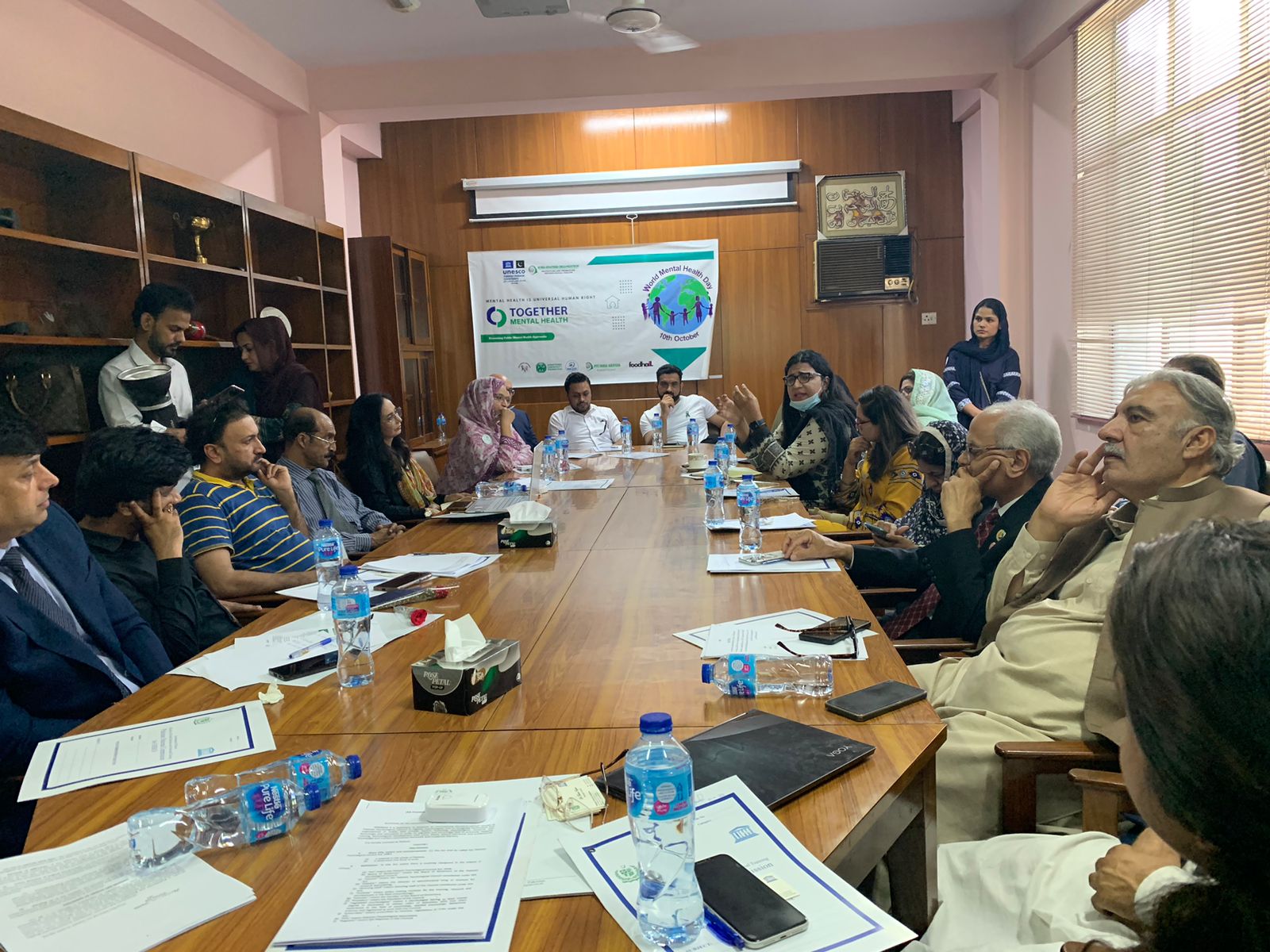Mental Health Matters: Stakeholders Call for State Recognition
Shazia Mehboob
Islamabad: While the prevailing circumstances necessitate a comprehensive state-led approach to address the growing mental health problems in Pakistan, state representatives are hesitant to recognise mental health as a national health concern.
These views were expressed by participants in a consultation session held in connection with World Mental Health Day in Islamabad on Tuesday.
The stakeholders observed that mental health issues need official recognition as a disease so that policy can be formulated to take measures before this growing challenge takes the shape of an epidemic, adding that this reluctance can have serious implications for the well-being of over 240 million people in Pakistan.
‘Every year, an estimated 800, 000 people commit suicide as a result of mental health problems’
The event was organised by Sobia Khateeb Organisation in collaboration with HomeTown Community Foundation, UNESCO Pakistan National Commission, and others in Islamabad on Tuesday. The purpose of the consultative session was to review the current mental health-related challenges and discuss the way forward.
The participants were of the view that the prevailing economic situation has undoubtedly contributed to the rise in mental health issues among its citizens. Economic hardships, unemployment, and financial stress can take a toll on people’s mental health. The situation demands immediate measures, which are only possible when mental health issues are added to the agenda of the health ministry.
These issues can affect individuals, families, and communities, ultimately impacting the nation’s overall social fabric and productivity, they added.  The absence of governmental recognition of mental health can lead to inadequate resources and support for those who are struggling with mental health problems, said Dr Tanvir Kayani, head of the Pakistan National Commission.
The absence of governmental recognition of mental health can lead to inadequate resources and support for those who are struggling with mental health problems, said Dr Tanvir Kayani, head of the Pakistan National Commission.
Dr Sajida Kayani, a clinical psychologist, questioned why we should wait for the problem to escalate and why it should not be handled immediately.
The drafting of a national mental health policy is a positive step in addressing these challenges since it may give a structured framework for addressing mental health issues holistically, including prevention, treatment, and support services.
Depression and anxiety cost the global economy $1 trill per year: Study
Participants agreed that it is crucial for Pakistan’s government to emphasize mental health problems and allocate the required resources to solve this issue. They said that mental health issues can have far-reaching repercussions, and acknowledging them as a health concern is an important step towards guaranteeing the population’s well-being.
Another participant, Manzoor Samrro, said that we must understand the implications of this unseen epidemic in order to address the issues and move on with remedies.
According to the data presented by the organisers in their presentation, mental health concerns are a growing global challenge, with one in every four persons experiencing a mental health issue during their lives. Every year, an estimated 800, 000 people commit suicide as a result of mental health problems.
There is an unmet demand of 80 percent in the world’s leading therapy national service (IAPT), and mental health disorders account for 13 per cent of global health issues. Depression and anxiety cost the global economy $1 trill per year. It is to mention here that there is no data available on mental health issues in Pakistan.
There is no data available on mental health issues in Pakistan.
Meanwhile, Ismat Shah, a Clinical Psychologist, said that it is our social responsibility as responsible citizens to reduce the stigma surrounding mental illness and mental health conditions by demonstrating resilience to mental and psychological issues.
She was speaking at a seminar held in connection with World Mental Health Day at Government Girls Degree College Adenzai in Lower Dir.
Shah underscored the need to make collective efforts to help people suffering from severe psychological problems.

Comments are closed.